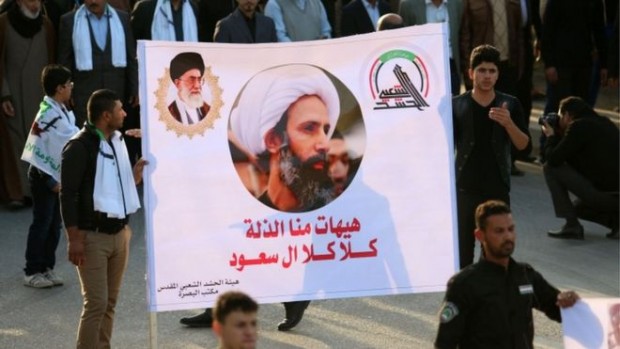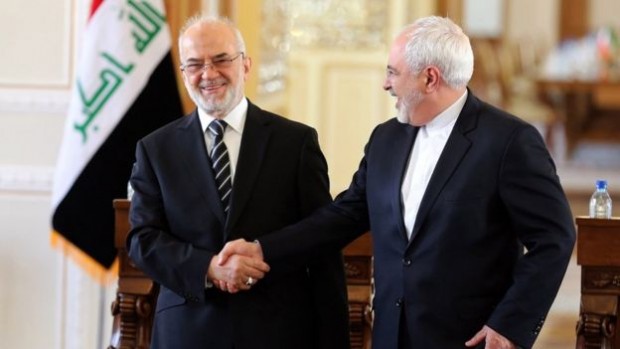Qatar joins diplomatic strife against Iran

BBC
Qatar has become the latest country to back Saudi Arabia in its diplomatic row with Iran.
On Wednesday it said it was recalling its ambassador to Tehran.
The row followed Sunni-ruled Saudi Arabia’s execution of a top Shia cleric. Protesters in Tehran responded by attacking the Saudi embassy.
Djibouti on Wednesday followed Bahrain and Sudan in cutting ties with Iran. Jordan summoned the Iranian ambassador to protest against the embassy attack.
Kuwait earlier recalled its ambassador to Tehran and the United Arab Emirates reduced its diplomatic presence.
Iran’s diplomats have now withdrawn from Saudi Arabia in response to Riyadh’s decision to sever ties over the attack.
‘Violation of norms’
BBC World Service Middle East editor Sebastian Usher says that, in the past few years, Qatar has often been at odds with Saudi Arabia, supporting different rebel groups in Syria and backing the Muslim Brotherhood in Egypt.
But it has been modifying its stance recently, he says, bringing it more into line with the Saudis and other Gulf states. Its soldiers are currently fighting in Yemen as part of the Saudi-led coalition against Shia Houthi rebels.

Qatar’s foreign ministry called the embassy attack a “violation of international charters and norms that ensure the security and protection of diplomatic missions and their members”.
On Wednesday, Iraq offered to mediate in the row. Foreign Minister Ibrahim Jaafari said if tensions were allowed to escalate, the entire region could be affected.
Mr Jaafari was in Tehran meeting Iranian Foreign Minister Mohammad Javad Zarif.
Mr Zarif accused the Saudis of acting against the Iranian people by keeping oil prices low.
He said: “This trend of creating tension must stop. We need to stand united… and stop those who are adding fuel to the fire.”
Saudi Arabia and Iran are the key Sunni and Shia powers in the region respectively, and back opposing sides in the conflicts in Syria and Yemen.
The United Nations has urged both sides to reduce tensions.
The row started after the execution of Shia cleric Sheikh Nimr al-Nimr, along with three other Shia convicted of terrorism offences in connection with the protests in Eastern Province, and 43 Sunni al-Qaeda militants.
Mr Jaafari described the execution of Sheikh Nimr as a “crime”, but said Iraq was nevertheless ready to help “alleviate tensions between Iran and Saudi Arabia”.
Sunni-Shia divide
- The split arises from a dispute soon after the death of the Prophet Muhammad in 632 over who should lead the Muslim community
- Sunnis are estimated to make up between 85% and 90% of Muslims
- Although the two branches have co-existed for centuries and share many fundamental beliefs and practices, differences lie in the fields of doctrine, ritual, law, theology and religious organisation
How to submit an Op-Ed: Libyan Express accepts opinion articles on a wide range of topics. Submissions may be sent to oped@libyanexpress.com. Please include ‘Op-Ed’ in the subject line.
- Libya removes Cairo embassy chief in diplomatic shake-up - November 22, 2024
- Libya records over 600 road deaths in three months - November 22, 2024
- Italy faces alarming death toll from antibiotic-resistant infections - November 22, 2024


